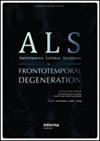Years in Cultural Studies: 2013
引用次数: 0
Abstract
n Eastern Europe, which is the focus of our study, different national scholarly traditions assigned their own place to the study of culture. Although the influence of the kulturologia (“culturology”) schools installed at Russian universities in the 1980s radiated out into Eastern European countries, local academic communities dictated the approach to the study of popular culture. While the Polish field of kulturoznawstwo was propelled by internal forces from the early 1970s onwards, in Czechoslovakia, kulturologie emerged as a new discipline around the fall of the Communist regime. Even so, it failed to take off and by 2012 had vanished completely from the Czech Republic. Central European countries were also affected by the German academic tradition of Kulturwissenschaften with its emphasis on philosophy and aesthetics. Our inquiry highlights the first international conference on cultural studies in the Czech Republic in 2013. It was during this event that a group of new postdocs from Charles University, including ourselves, raised the topic of changes in Eastern European popular culture due to the political transformation in 1989. This group had also arranged for Ann Gray, the final director of the UK Centre for Contemporary Cultural Studies (CCCS) to give a keynote address at the conference, a gesture that clearly linked the CCCS with the group’s own Centre for the Study of Popular Culture (CSPK) established three years earlier. From the outset, CSPK’s organizers aimed to promote the Anglo-American tradition of cultural studies both in the academy and among the general public. At the same time, they sought to retain their independence from academic structures and funding systems that might restrict their political activism.研究年限:2013年
在东欧,这是我们研究的重点,不同的国家学术传统为文化研究分配了自己的位置。虽然20世纪80年代在俄罗斯大学设立的文化学(“文化学”)学校的影响辐射到东欧国家,但当地的学术团体决定了流行文化研究的方法。波兰文化领域从20世纪70年代初开始受到内部力量的推动,而在捷克斯洛伐克,文化学是在共产主义政权垮台前后作为一门新学科出现的。即便如此,它也未能起飞,到2012年,它已经完全从捷克共和国消失了。中欧国家也受到德国强调哲学和美学的学术传统“文化智慧”的影响。我们的调查强调了2013年在捷克共和国举行的第一届文化研究国际会议。正是在这次活动中,查理大学的一群新博士后,包括我们自己,提出了1989年政治转型导致的东欧流行文化变化的话题。该组织还安排了英国当代文化研究中心(CCCS)的最后一任主任安·格雷(Ann Gray)在会议上发表主题演讲,这一姿态显然将英国当代文化研究中心与该组织三年前成立的流行文化研究中心(CSPK)联系起来。从一开始,CSPK的组织者就希望在学术界和公众中推广英美文化研究的传统。与此同时,他们寻求保持自己的独立性,不受可能限制其政治活动的学术结构和资助制度的影响。
本文章由计算机程序翻译,如有差异,请以英文原文为准。
求助全文
约1分钟内获得全文
求助全文

 求助内容:
求助内容: 应助结果提醒方式:
应助结果提醒方式:


